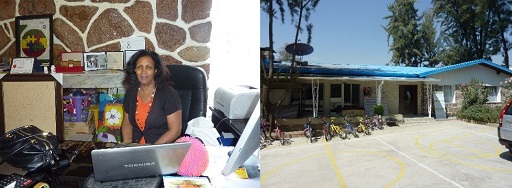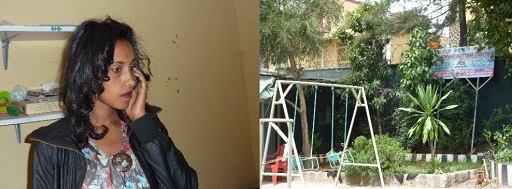5.3 Autism in Ethiopia
Ethiopia is in sub-Saharan Africa, with a population of almost 100 million, of whom around 50 per cent are children, and 85 per cent based in rural areas. Despite strong growth in the last decade, Ethiopia remains one of the poorest countries in the world.
In 2012, Dr Rosa Hoekstra (now at Kings College London) led a team of specialists from the OU and Addis Ababa University (AAU) on the first research project on autism in Ethiopia. To ensure practical benefits, development of training materials was integral to the project. Previously the OU had provided health training resources for the rurally based
The team conducted interviews with the few service providers in the capital Addis Ababa and looked at public documentation (Tekola et al., 2016). The emerging picture mirrored the broad picture already outlined for LMICs, highlighting low levels of awareness and high levels of stigma among the public, limited specialist training, sparse mental health services, and inadequate funding in the context of other health priorities.
The two schools for autistic children were both set up in Addis Ababa by parents of autistic boys, among the very few children to have been diagnosed. After finding that no school would take her own autistic son, in 2003 Zemi Yenus established the Nia Foundation Joy Center for Autism, which now provides for around 80 children and offers advice, support and training to parents.
Another parent, Rahel Abayneh, established the Nehemiah Center in 2010, also in Addis Ababa and catering for around 60 children. Both parents campaign vigorously to raise public awareness, combat stigma and mobilise practitioners and policy-makers. As of 2018, two more autism schools have opened outside the capital.


